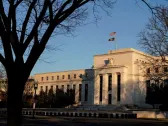Here is the rewritten article in Markdown format, following all specified guidelines:
# The Growing Controversy Over Auditing the Federal Reserve's Monetary Policy Decisions
## Introduction
The Federal Reserve, often referred to as the Fed, stands as a cornerstone of the U.S. financial system, playing a pivotal role in setting interest rates that influence the economy at large. Recently, Elon Musk, the renowned CEO of Tesla and SpaceX, has expressed his support for auditing the Fed's monetary policy decisions. This move has sparked significant debate, particularly as President Donald Trump continues to shake up the federal bureaucracy. The idea of subjecting the Fed's independent decision-making process to scrutiny has drawn criticism from some quarters, while others argue that transparency is crucial for maintaining trust in one of the world's largest central banks.
## The Context of Auditing
### Why Independence Matters
The independence of the Federal Reserve is a cornerstone of the U.S. economic framework. By setting interest rates, the Fed influences borrowing costs, inflation, and overall economic growth. However, this independence also makes the Fed a target for critics who believe that its decisions could be manipulated to favor certain political agendas. The question arises: should the Fed's monetary policy decisions remain opaque or should they be subject to public scrutiny?
### Historical Attempts at Transparency
In 2015, the Federal Reserve Transparency Act was introduced with the aim of increasing transparency about the factors influencing key interest rates. This legislation included detailed reports on monetary policy decisions and their rationale. Despite these efforts, opposition from within the Fed itself led to the bill's defeat in Congress. Critics argued that increased transparency might undermine the independence needed for prudent economic decision-making.
### The Impact of Trump's Executive Order
In a significant shift, President Trump signed an executive order that appeared to weaken the Federal Reserve's ability to act independently. The order directed federal agencies to avoid certain types of lending guarantees, effectively restricting the Fed from influencing mortgage rates and other key financial instruments. Notably, this directive excluded the Fed's role in setting monetary policy, marking a notable departure from prior administrations.
## Experts' Opinions on Transparency
### The Case for Independence
Former Federal Reserve Chair Ben S. Bernanke has emphasized the importance of maintaining the Fed's independence to ensure sound economic policies. "The Fed should act as an independent central bank," he stated, highlighting its critical role in preventing inflation and fostering sustainable growth.
### Support from Key Figures
Opponents of tighter oversight have pointed to examples of successful monetary policy implementation by the Fed. For instance, Bernanke's tenure included significant interventions during the 2008 financial crisis, underscoring the Fed's ability to act as a stabilizing force in times of economic turmoil.
## Public Reaction and Controversy
### The Backlash Against Overtransparency
Critics argue that excessive transparency risks undermining the Fed's independence. "If we make it too easy for critics to second-guess Fed decisions, they might use this as leverage," warned one advocate of monetary policy stability.
### Balancing Act in Economic Policy
The challenge lies in finding a balance between accountability and the preservation of a central bank's independence. Too much scrutiny risks introducing inefficiencies or political bias into the decision-making process. Conversely, too little transparency raises concerns about potential influence by non-Federal entities on Fed operations.
## The Future of Fed Transparency
### Potential Solutions
Recent discussions among policymakers suggest that incremental reforms might be the most practical approach to enhancing accountability without compromising independence. This could involve increasing the visibility of monetary policy decisions while maintaining the Fed's ability to respond independently to changing economic conditions.
### The Role of Public Trust
Public trust in the Fed is crucial for its effectiveness as a stabilizer of the economy. Striking a balance between transparency and autonomy will be essential in maintaining this trust amidst ongoing debates about the appropriate level of scrutiny.
## Conclusion
The proposal to audit the Federal Reserve's monetary policy decisions has entered a new phase, with recent developments under President Trump further complicating the delicate balance between accountability and independence. As this issue continues to evolve, understanding the implications for economic stability will remain a focal point of both policymakers and the public.





